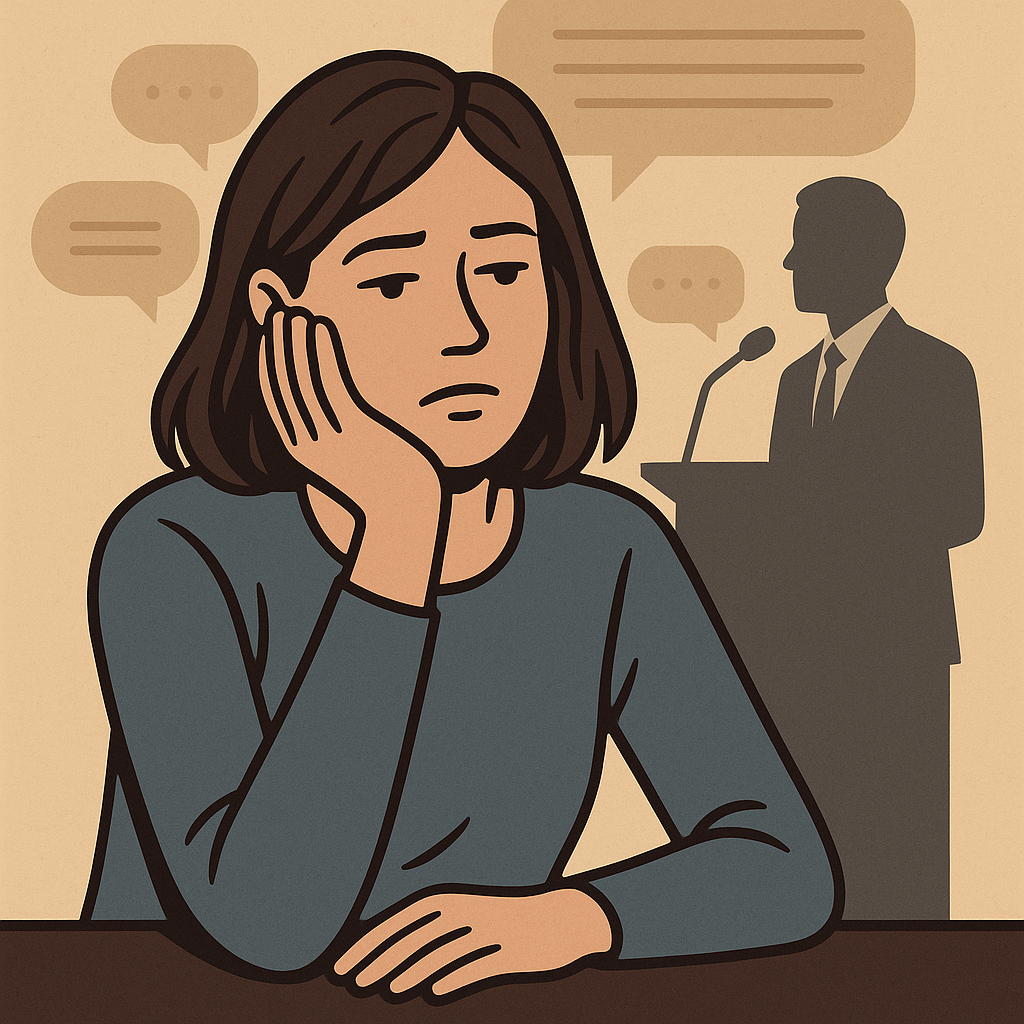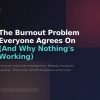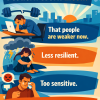
That Inc. CEO Survey and Why I Can't Stop Thinking About Quiet Quitting at 2 AM
Look, I was doom-scrolling through work stuff again last night when I should've been sleeping. Found this Inc. survey where 59% of CEOs say keeping people is harder than finding them.
And honestly? That hit me weird.
Because here's what nobody's saying: your best people have already quit. They just haven't told you yet. They're still showing up. Still in the Zoom squares. But somewhere between that fourth "urgent" weekend Slack and their manager canceling their one-on-one for the third time, they just... stopped.
I've been there. Maybe you have too. That moment when you realize you're just going through the motions, collecting a paycheck from people who see you as an expensive line item.
The thing is, quiet quitting isn't about being lazy
God, I'm tired of that narrative. You know what quiet quitting actually is?
It's what happens when you realize that no amount of stress management techniques can fix a fundamentally broken situation. When you've tried meditation apps and breathing exercises and time management hacks and nothing works because the problem isn't you.
- Being asked to do three people's jobs because "we're all stretched thin"
- Having no actual growth path (unless "lateral opportunities" count)
- Realizing your ideas die in meetings nobody remembers
- Watching incompetent people fail upward while you document everything to cover your ass
I read somewhere—maybe it was in the NYT comments I save at 3 AM—that caring too much leads to burnout because there's very little we can control. So we control how we respond.
That's quiet quitting. It's not giving up. It's self-preservation.
Gallup says this costs $8.8 trillion
That's trillion with a T. The global economy is hemorrhaging money because people have mentally checked out.
But you know what's worse than the money? It's that we're all pretending this is fine. Your company probably has engagement surveys. Mine did. We'd fill them out honestly, nothing would change, and HR would send another yoga app link.
Actually, let me tell you the real math: You're paying full salary for half-engaged work. At least when someone actually quits, you stop paying them. Quiet quitters are like... I don't know, paying rent on an apartment you never visit. Except the apartment is a human being slowly dying inside.
Here's what actually happens (from someone who's been there)
First, you're just tired. Sunday dread becomes your whole weekend. "Just push through this quarter" becomes every quarter.
Then you stop growing. No new challenges. No development. Just the same sprint with no finish line. For 18 months. Or three years. Or...
Eventually you realize nobody actually sees you. You're not a person with ideas and potential. You're a reliable cog. And reliable cogs don't get promoted—they get more work because they can "handle it."
One day you wake up and realize: they don't care about me, so why should I care about this?
That's when the quiet quitting starts.
Look, I don't have all the answers
But Emergent Skills has this thing about different approaches for different brains and situations. They talk about four pathways:
- Cognitive (for when your thoughts are the problem)
- Neurodivergent-affirming (because maybe trying harder isn't the answer)
- Environmental navigation (when it's actually the system that's broken)
- Skill-building (for genuinely new situations)
Your focus might be shot because you're burnt out. Or because your brain works differently. Or because your workplace is actually toxic. Different causes need different solutions.
Sometimes the answer isn't another productivity hack. Sometimes it's boundaries. Sometimes it's finding work that doesn't slowly kill you.
The part nobody talks about
I've watched brilliant people become ghosts. They're earning six figures but they've checked out so hard they can't even remember why they cared in the first place.
The weird thing? Companies keep hiring to fill the gaps left by people who are still there. Like trying to bail out a boat while ignoring the hole in the bottom.
My friend in tech told me she's been burnt out for 20 years. Twenty. Years. Golden handcuffs, she calls it. Great salary, health issues getting worse, can't remember the last time she didn't work on Sunday. Sometimes I wonder if she'll make it to retirement.
That's not success. That's a slow-motion tragedy with good benefits.
What now?
I don't know, honestly. I'm writing this at 2:47 AM because I can't sleep, thinking about all the people slowly dying in jobs that see them as replaceable cogs.
The CEOs in that survey are worried about retention. But they're measuring the wrong thing. They're counting bodies in seats, not souls that have already left.
Maybe you need new coping strategies. Maybe you need a new job. Maybe you need to burn it all down and start over. I can't tell you which one.
Find Your Path Forward
Emergent Skills offers different approaches to workplace struggles - cognitive pattern work if your thoughts are the problem, neurodivergent-affirming strategies if your brain needs different support, environmental navigation when the system's broken, and skill-building for genuinely new challenges.
Start Your Free 30-Minute Reset
Or don't. Maybe you're too tired for another solution right now. That's okay too. But, this may help a little.
Just... if you're reading this at 2 AM because you can't stop thinking about work, you're not alone. And it's not your fault. And breathing exercises won't fix a broken system.
The question isn't whether you'll burn out. It's whether you'll notice before you become another expensive ghost.









